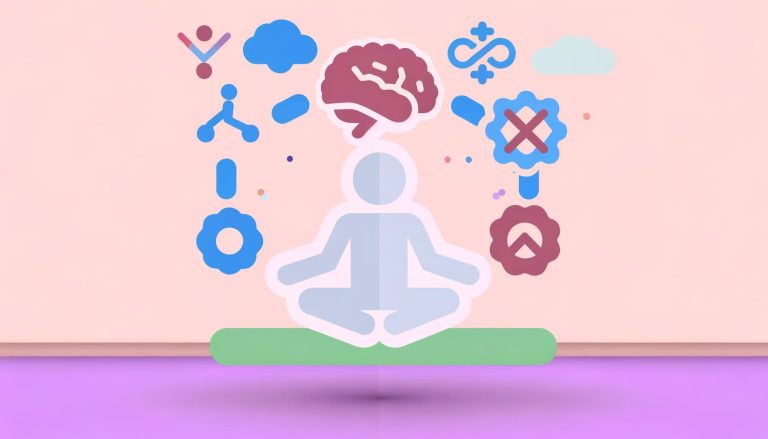In today’s demanding world, it’s no surprise that mental health has become a paramount concern for many. Amidst the hustle and bustle of daily life, maintaining a balance between mental and physical well-being can seem elusive. However, an approach that bridges the connection between the mind and body can lead to remarkable benefits for overall health. This article explores the profound impact that mind-body practices have on mental health, offering insights into their benefits, practical implementation, and scientific support.
The Connection Between Mind and Body
Mind-body practices recognize the intricate link between our mental and physical states. This connection has been emphasized across various disciplines, including psychology, neuroscience, and even traditional medicine. By understanding that thoughts, emotions, and physical reactions are interrelated, individuals can harness specific practices to enhance their mental health.
Understanding Mind-Body Practices
Mind-body practices encompass a diverse range of techniques designed to improve mental and physical health through mindful awareness and physical movement. Some of the most prominent practices include:
- Yoga: Combining physical postures, breathing exercises, and meditation, yoga has been shown to reduce stress and improve overall mental well-being.
- Meditation: A practice centered on focused attention and mindfulness, meditation enhances emotional regulation and decreases symptoms of anxiety and depression.
- Tai Chi: A form of martial arts that focuses on slow, deliberate movements and mindfulness, Tai Chi promotes relaxation and stress reduction.
- Deep Breathing Exercises: Techniques that involve deeply inhaling and exhaling to induce relaxation and reduce stress.
- Progressive Muscle Relaxation: A method of tensing and then slowly relaxing each muscle group, aiding in physical and mental relaxation.
Benefits of Mind-Body Practices on Mental Health
The advantages of incorporating mind-body practices into one’s daily routine are manifold. Research has repeatedly demonstrated these benefits in various aspects of mental health:
Reducing Stress and Anxiety
Mind-body practices like yoga and meditation have been shown to activate the parasympathetic nervous system, which counters the body’s stress response. This activation helps reduce cortisol levels, thereby lowering stress and anxiety.
Improving Mood and Emotional Regulation
Engaging regularly in mind-body activities can lead to better mood regulation and a more positive outlook. Practices such as yoga and Tai Chi promote the release of endorphins, known as “feel-good” hormones, while meditation fosters mindfulness, allowing individuals to manage their emotions more effectively.
Enhancing Cognitive Function
Evidence suggests that mind-body practices can improve cognitive function, including memory and attention. The focus required in practices like meditation helps to strengthen neural pathways associated with these functions.
Promoting Better Sleep
Poor sleep is often linked to anxiety and depression. Through mechanisms such as stress reduction and physical relaxation, mind-body practices can improve sleep quality and duration, contributing to overall mental health improvements.
Strengthening Resilience
Resilience, or the ability to bounce back from adverse situations, is crucial for mental well-being. Regular engagement in mind-body practices equips individuals with tools to handle stressors more effectively, enhancing their resilience and coping strategies.
Fostering a Sense of Community
Participation in group classes for yoga, Tai Chi, or collective meditation can provide a sense of community and social support. These interpersonal connections are vital for emotional health and can reduce feelings of loneliness and isolation.
Enhancing Self-Awareness and Personal Growth
Mind-body practices encourage introspection and self-awareness, facilitating personal growth and self-improvement. Understanding oneself at a deeper level fosters a stronger connection with one’s values, goals, and overall sense of purpose.
Practical Tips for Incorporating Mind-Body Practices
Integrating mind-body practices into your daily routine doesn’t have to be daunting. Here are some practical tips to get started:
Start Small
Begin with short sessions and gradually increase the duration as you become more comfortable. Even 5 to 10 minutes of meditation or deep breathing exercises can make a significant difference.
Find What Works for You
Experiment with different practices to identify those that resonate the most. Whether it’s practicing yoga in the morning or engaging in Tai Chi in the evening, consistency is key.
Mix and Match
Incorporate a combination of practices to keep your routine varied and engaging. You might choose to meditate on certain days and practice yoga on others.
Attend Classes or Workshops
Joining a local class or workshop can provide guidance and motivation. It also offers the added benefit of social interaction and support from like-minded individuals.
Prioritize Self-Care
Make mind-body practices a non-negotiable part of your routine. Schedule them into your day just as you would any other important activity.
Conclusion
The integration of mind-body practices into daily life holds transformative potential for mental health. Through the interconnectedness of physical and mental well-being, these practices offer a holistic approach to managing stress, enhancing mood, improving cognitive function, and fostering resilience. By incorporating techniques such as yoga, meditation, or Tai Chi, individuals can take proactive steps towards a healthier, more balanced life. Embracing these practices not only nurtures mental health but also enriches overall well-being, leading to a more harmonious existence.
Sources:


